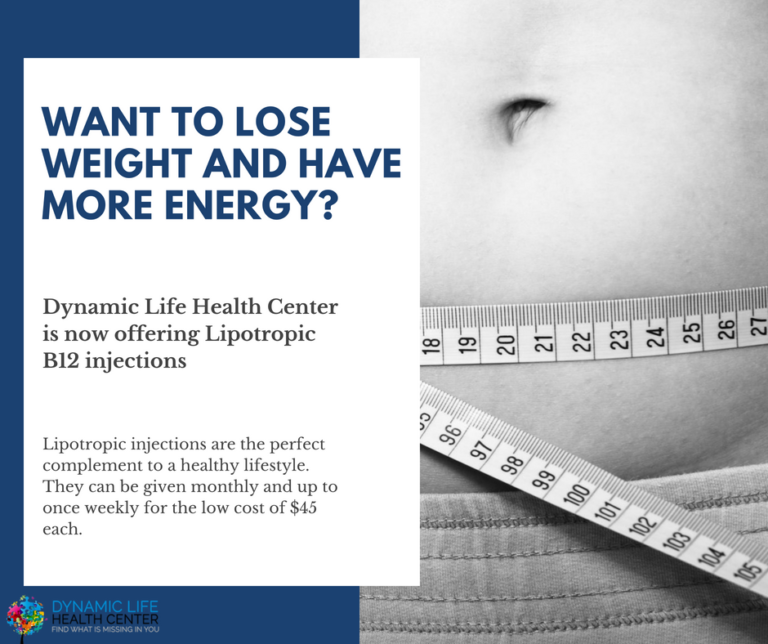
Balance can mean different things to different people. Balance is being in a state of equilibrium. We hear people talk about balancing work, life, self and family, yet it’s hard to achieve.
So, what is a hormone? Hormones are chemical messengers produced by one part of the body to tell the other part of your body what to do. When your hormones are unbalanced, you experience fatigue, brain fog, irritability, anxiety and depression.
Whether you’re male or female, the hormones that need to be in balance that we test for are estrogen, progesterone, testosterone, pregnenolone, dhea, cortisol, insulin and thyroid.
Our food choices, environment, attitude, aging, stress, insomnia, genetics, and our daily exposure to chemicals can affect our hormone levels.
Cortisol Impact
Cortisol is the most important hormone to balance! We need cortisol to live, help manage stress, sleep, balance blood sugars, regulate mood, blood pressure and our immune system. Usually, we think of only one hormone at a time. Thyroid symptoms indicate a thyroid problem. Blood sugar problems mean there’s an insulin problem. Symptoms around sexual function indicates a sex hormone problem and high stress means a cortisol problem. These four systems affect each other in a complex balancing game.
Cortisol is the only hormone in your body that increases with age. When you are stressed, your adrenal gland will secrete cortisol. Over time, with constant stress your body can be depleted of cortisol reserves leading to a condition called adrenal fatigue. In today’s world a lot of people are in a constant state of stress. We tend to take on too many tasks and overbook ourselves. It’s important for us to gain control over our time and to learn to say no.
With high cortisol levels, you can get binge eating, fatigue, problems regulating your thyroid hormones, high blood pressure, high blood sugar, high cholesterol, osteoporosis, irritability, insomnia, sugar cravings and brain fog.
Too much cortisol caused by stress directly causes all of our tissues to no longer respond to the thyroid hormone signal. It creates a condition of thyroid resistance, meaning the thyroid levels can be normal but the tissues fail to respond.
When cortisol is high, the brain is less sensitive to estrogens. You can have a postmenopausal woman with a reasonable amount of estrogen but when you put her under stress and her cortisol rises she will have hot flashes. Hot flashes can be a symptom of estrogen deficiency but she really doesn’t have an estrogen deficiency. It’s the brain sensors that are altered. If you give her estrogen she will get symptoms of estrogen dominance like weight gain, water retention, and moodiness. Her hot flashes will also not go away. So in summary, if your cortisol is chronically high you can have resistance to all your hormones working properly.
If your cortisol is low you can experience allergies, decreased sex drive, fatigue, feelings of being overwhelmed, low blood sugar, loss of motivation, and low thyroid function. We can test our cortisol functioning by measuring 4 saliva samples throughout the day. Treatment of abnormal cortisol levels involves stress reduction, vitamin and mineral supplementation, and herbal products to help balance your cortisol levels.
Thyroid Hormone Influence
The thyroid gland secretes hormones that regulate the activities of almost every cell in your body. Thyroid hormones control the body’s metabolism, energy, and mood, just to name a few. About 10% of our population has underdiagnosed thyroid disease. As we age, our risk for thyroid disease increases. We can also develop an autoimmune condition called Hashimoto’s disease in which our body produces antibodies against the thyroid hormone production.
Hypothyroidism is associated with ADHD, fibromyalgia, congestive heart failure, depression, heart disease and diabetes. It’s an important hormone that must be regulated. Estrogen can have a profound effect on thyroid. Increased estrogen levels can increase the binding protein which causes your thyroid to be less effective.
Pregnenolone Importance
Pregnenolone deserves to be mentioned because it’s considered the “mother of all hormones.” It can convert to all the other hormones when our body needs it. It helps to regulate memory, mood and sleep. Symptoms of deficiency include arthritis, depression, declining memory and focus and insomnia. If you don’t have enough cortisol your body can take the pregnenolone you do have and convert it into cortisol. This can be a protective mechanism but also can be detrimental if it drives it too low. Low thyroid levels can also cause a decline in pregnenolone. Because pregnenolone is made from cholesterol (along with all our other hormones) if we lower our cholesterol below 140, we will have trouble making pregnenolone as well as all our other hormones.
Insulin Interactions
Your body makes a hormone called insulin to regulate your blood sugars. It drives sugar into your fat, muscle and liver cells to be utilized for energy. If we eat too many sugars and starches or we have increased cortisol levels from stress, we can increase our insulin levels which will in turn cause us to store fat in our abdominal area. We can also become resistant to our insulin that we produce and develop Type 2 diabetes. Imbalances in our hormones can all lead to insulin resistance.
We can help prevent insulin resistance and diabetes by limiting our sugars and using supplements such as chromium, cinnamon, alpha lipoid acid and fish oils. Exercise, sleep and stress reduction also help to balance your insulin production.
Testosterone Insulin
Testosterone is important in both men and women. It functions to build bone, decrease body fat, increase muscle mass, increase sex drive and help with depression and memory. Symptoms of testosterone deficiency include loss of muscle tone, decrease sex drive, droopy eyelids, thinning hair, fatigue, mild depression and erectile dysfunction.
Causes of testosterone deficiency can be cortisol imbalance, birth control pills, exposure to xenoestrogens, menopause and zinc deficiency. Xenoestrogens are environmental compounds with estrogenic activity and can interfere with or mimic your own hormone synthesis. Examples are plastics and toxins we are exposed to on a daily basis. Xenoestrogens are not just disrupting women’s hormonal balance, they are wreaking havoc on sperm counts and prostate cancer rates in men.
It’s important when replacing testosterone to start low and go slow. We have no way of knowing how our body is going to metabolize the testosterone. If we give too much testosterone, it can convert to estrogen which can be problematic for men and women. We have to also carefully monitor the byproducts of testosterone called the DHT or dihydrotestosterone. DHT can cause hair loss and prostate enlargement and acne.
Progesterone and Premenstrual Syndrome Estrogen
Estrogen has 400 critical functions in our body. It regulates body temperature, prevents Alzheimer’s disease, maintains muscle mass, improves bone strength, regulates blood pressure, energy, mood and sex drive. Estrogen also decreases wrinkles and increases your good cholesterol lowering your risk of heart disease. Men also need enough estrogen to prevent osteoporosis and depression. Men also need a small amount of progesterone for mood and memory.
Perimenopause starts usually between ages of 35-50. As it turns out progesterone is far more crucial than we believed. It is essential to maintain a delicate balance between the two hormones to feel your best.
As you get older the amount you make fluctuates month to month and year to year which causes a roller coaster of symptoms. At 35 you begin to have problems with ovulating. Your levels of estrogen fluctuate wildly while progesterone drops off. High estrogen levels aren’t held in check by progesterone are the result of fewer ripe eggs. Increased estrogen levels cause breast tenderness, heavy bleeding, migraines and mood swings. You might have a lighter cycle one month and heavier the next, this is perimenopause in some cases.
When your progesterone runs low you can experience anxiety, decreased sex drive, insomnia, mood swings, bloating, weight gain and heavy periods. When your estrogen is high in relationship to your progesterone you can develop increased risk of breast cancer, uterine fibroids, uterine cancer and infertility. Progesterone is important in helping us sleep and stay calm. It acts as a diuretic, boosts our metabolism and helps our thyroid to function more efficiently. It is considered protective against breast cancer and balances out the effects of estrogen on the breast.
PMS is premenstrual syndrome and is a hormonal disorder that is characterized by monthly reoccurrences of physical and or psychological symptoms. Some of the symptoms can be weight gain, depression, anxiety, sugar and salt cravings, bloating, cramping, and fatigue. In PMS patients, the decrease of estrogen at ovulation is thought to cause a decrease in brain chemicals affecting your mood. In certain patients with PMS, progesterone after ovulation changes the GABA receptor in our brain so it no longer responds to the progesterone, then you lose your ability to feel calm!
Treatment strategies for PMS include calcium, magnesium, vitamin B6, Chaste Berry, St. John’s Wart, and decreasing sugar intake. Some patients will benefit from progesterone supplementation if needed.
There are three forms of estrogen our body makes: estrone, estradiol and estriol. Estrone is a reserve source of estrogen for your body—this is its only function. In menopause very little estrone can convert to estradiol since ovaries stop working. Estrone can be stored in fat cells and is associated with higher rates of breast cancer. We recommend supplements and eating more fruits and vegetables so our bodies will convert estrone to estradiol. Estradiol is the strongest form of estrogen. It is 12 times stronger than the estriol. Estradiol is our main estrogen that we make before menopause, so we want more estradiol then estrone.
Estriol is the third estrogen and has less stimulator effects on the breast and uterus. It has been shown to be protective against breast cancer. When prescribing estrogens together, we use a blend of estriol and estradiol. The combination of estradiol and estriol is called Biest.
Synthetic estrogen, most commonly written as Premarin, is made from horses’ urine. The problem with synthetic estrogen is that it contains many forms of estrogen that do not fit into the receptors in your body. Bioidentical hormones are similar in structure to our own body’s production of hormones. Bioidentical estrogen is eliminated in one day from your urine. Synthetic estrogen takes 13 days to be eliminated.
As we age, three major systems are affected. We see a decline in our eyesight, bone strength, and brain function. Our ability to see, walk and think can be affected. Estrogen helps all three of these major functions that we lose. Women on estrogen are half as likely to get Alzheimer’s disease. Estrogen also helps raise your serotonin in your brain, helping with mood.
Balancing hormones involves monitoring levels on a regular basis. It is very important that we don’t have your levels running too high. If we use a topical cream the level is best measured in saliva. If we give an oral capsule, it is best measured in blood. We can order specific testing to monitor your metabolism of estrogen to see if you are metabolizing them beneficially.
If you feel you may be suffering from hormonal imbalance, contact our office for a comprehensive evaluation of your hormones.

